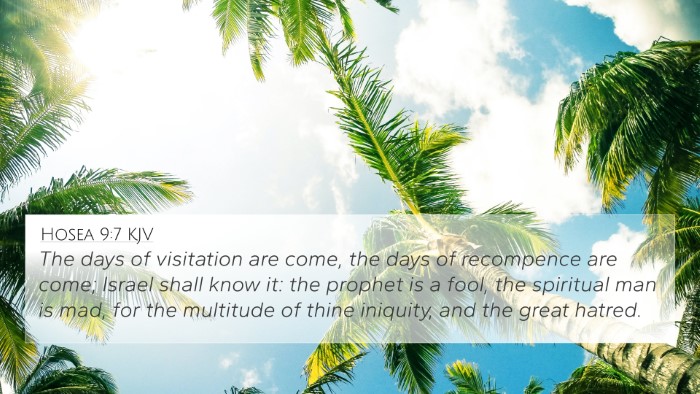Understanding 1 Corinthians 14:23
The verse 1 Corinthians 14:23 states:
"Therefore if the whole church be come together into one place, and all speak with tongues, and there come in those that are unlearned, or unbelievers, will they not say that ye are mad?"
Summary and Insights
This passage, penned by the Apostle Paul, addresses the practice of speaking in tongues during church gatherings. Paul emphasizes the importance of edification and clarity in worship, especially when non-believers are present. Here’s a breakdown of insights from noted public domain commentaries:
-
Matthew Henry:
Henry points out that the misuse of speaking in tongues can lead to confusion and chaos, especially for those unfamiliar with the faith. He stresses that the church's primary role is to build up its members and to present the gospel clearly to outsiders.
-
Albert Barnes:
Barnes elaborates on the idea that speaking in tongues should serve a purpose—namely, to instruct and edify rather than to create disorder. He suggests that when the church speaks in tongues without interpretation, it risks alienating those who do not understand the language of faith.
-
Adam Clarke:
Clarke explains that if a congregation speaks in tongues without interpretation, it may appear to outsiders as madness. He advocates for orderly worship that invites understanding and participation from both believers and non-believers, therefore fostering a welcoming atmosphere.
Key Themes
This verse touches upon several important themes in Christian worship:
- Order in Worship: Emphasizes the need for structured gatherings that make sense to everyone present.
- Purpose of Tongues: Highlights that the gift of tongues should not be used frivolously but with the goal of edification and clarity.
- Inclusivity in Teaching: Stresses the importance of making worship understandable for both believers and non-believers.
Bible Verse Cross-References
1 Corinthians 14:23 can be cross-referenced with the following verses that deal with similar themes of communication, edification, and worship practices:
- 1 Corinthians 14:27-28: Discusses the need for interpretation of tongues to ensure that all can understand.
- Acts 2:4: Describes the event of Pentecost where the apostles spoke in tongues, enabling diverse listeners to understand.
- Romans 14:19: Encourages believers to pursue peace and edification in their interactions with one another.
- Ephesians 4:29: Advises Christians to speak only what is helpful for building others up according to their needs.
- 1 Timothy 1:5: Emphasizes the aim of instruction is love from a pure heart, a good conscience, and a sincere faith.
- James 1:19: Advises believers to be quick to listen and slow to speak, promoting thoughtful communication.
- Philippians 1:27: Encourages standing firm in one spirit, striving together for the faith of the gospel.
Connections Between Bible Verses
Through a comparative Bible verse analysis, we can see how 1 Corinthians 14:23 connects with others:
-
Thematic Bible verse connections: Similar themes of clarity and edification are found throughout Paul's letters, particularly in his discussions about spiritual gifts and their purpose within the community.
-
Bible verses that relate to each other: For anyone delving into cross-referencing Biblical texts, this passage serves as a pivotal point for understanding the nature and use of spiritual gifts in church settings.
-
Inter-Biblical dialogue: This verse invites an exploration of the connection between the Old Testament prophecies about speaking in tongues and their New Testament fulfillment, creating a dialogue that deepens the understanding of God's communication with humanity.
Bible Study and Reference Tools
To enhance understanding of 1 Corinthians 14:23, various tools for Bible cross-referencing can be utilized:
- Bible concordance: It can help locate different uses of terms such as "tongues" and "edification."
- Bible cross-reference guide: These guides aid in identifying connections between verses and themes across the scriptures.
- Cross-reference Bible study: Engaging in a study focused on connections can deepen knowledge and understanding of scripture.
- Bible reference resources: Books and software that compile cross-references assist believers in exploring the fullness of biblical texts.
Conclusion
The exploration of 1 Corinthians 14:23 reveals profound truths about the nature of church gatherings and the need for intentionality in communication. The call for order, clarity, and inclusivity serves as a foundational principle for today's worship practices. By engaging in detailed cross-referencing and comparative studies, believers can foster a deeper connection with scripture and its practical implications for their lives and communities.







